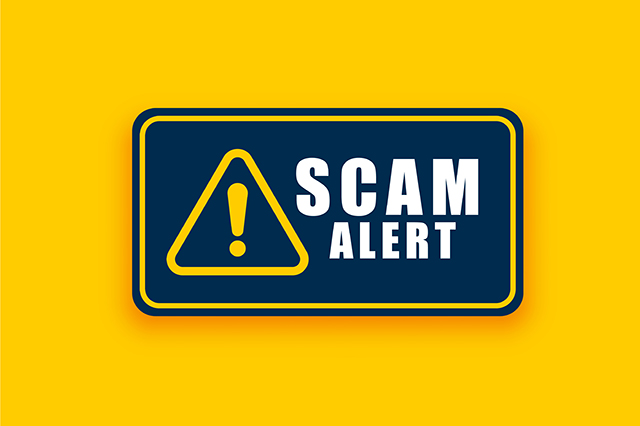- Brokers HOT
- Scam
- BV Assessment NEW
- Rankings
- Regulators
- News
- Claims
- Expo
- Event
- Awards
 Download
Download
How to Identify Potential Scams in Forex Trading

As we all know, many criminals in the foreign exchange market use this financial product for fraudulent activities.The number of fake brokers even far exceeds that of legitimate companies. As an ordinary retail forex investor, is there no way to avoid being scammed? BrokersView will show you how to identify potential scams in forex trading in this article.
Check a Broker's Forex Licence
The most straightforward way to identify a forex scam is to see if a website, entity, or company has obtained the appropriate local financial license. In other words, is it overseen by a regulatory body?
Today's retail forex trading has been around for decades, so financial companies in most countries have well-established regulatory mechanisms for this market. It is a sure thing for legitimate brokers to be licensed by one or more financial regulators to legally provide currency pair trading services under the supervision of financial laws and regulations, which can go a long way to avoiding violations by brokers. Even if the misconduct occurs, the investor can complain to the regulator and may be compensated by a financial compensation scheme.
Fraudulent brokers definitely don't have a licence. Why?
First, applying for a financial license is not an easy matter since the application process often takes time, money, and effort. That's why legitimate companies often acquire local licensed firms when expanding a new market rather than applying to the regulator for a new license. Scammers who are only eager for ill-gotten definitely will not make such "worthless" efforts.
Moreover, even if the scammers wanted to apply for a license, they would not be able to provide the materials and application fees required since their operations are not legal! It is impossible to get financial authorization.
In general, choosing financial services from a legitimate licensed broker does not completely avoid investment risks, but it can largely avoid being scammed.

Compare the details provided by the company and the regulator
As investor education gradually reaches more and more people, many investors who are aware of the importance of financial licensing will actively avoid dealing with unregulated firms.
To gain the trust of more investors, illegal firms steal the licenses and details of legitimate firms and pretend to be compliant brokers. Such illegal firms are often referred to as imposters or clones by regulators.
Fake brokers that are silent on regulatory information or fabricate non-existent ones to deceive the public are relatively easy for investors to spot because the information provided would not match the search results on the regulator's portal. But spotting imposters and clones requires further investigation.
Even if the search results match the provided info, it doesn't mean you are dealing with the genuine one.
When you find that the domain name, phone number, address, and other information do not match with the information certified by a watchdog, you are likely to encounter an imposter.
Moreover, in some cases, regulators that provide relatively weak regulations will not provide sufficient details for investors to verify, so it is difficult for investors to use the limited information to determine whether a broker is legitimate or not. It is suggested to deal with caution. When there is no confirmation that you are dealing with a legitimate company, the best way to avoid scams is not to deal with them.
Ignore unsolicited investment opportunities
If you have never visited any investment website and have not ticked the box to allow them to send you promotional information, but you receive an unsolicited investment advert via email or phone, ignore it.
Many countries and regions have strict restrictions on financial promotions, so almost all unsolicited investment opportunities are scams.

Choose a forex proprietary trading company carefully
Most proprietary trading firms are unregulated compared to forex brokers since prop firms have their own funds at their disposal, rather than the funds of others. They only provide liquidity and execute other traders' orders, which allows them to avoid most regulations.
However, traders in these firms do not have "free" access to the firm's funds but are required to pay a registration fee and other fees to start trading. Therefore, it is not risk-free for traders.
The investment risks behind proprietary trading firms include fraud and actual counterparty concealed, profits diminished, unjust commission charges, and account termination by fabricated reasons.
In September of this year, the U.S. Commodity Futures Trading Commission (CFTC) charged the proprietary trading company "My Forex Funds" with using fraudulent practices to solicit customers for retail forex trading. Although the case is still under investigation, the case has raised doubts about the public's trust in prop firms.
Investors who wish to participate in forex trading through proprietary trading firms should be cautious and vigilant.
Check the blacklists released by financial regulators
Many financial regulators update their "blacklists" from time to time, and the companies/individuals that appear on these lists are almost fraudulent!
Three ways to view their warning lists:
- Follow BrokersView since we check and summarise the list of almost all warned Forex brokers. You can check in the "News" or "Scam", or ask a question.
- Generally, you can check if a broker has been warned by searching for the keyword "broker name + warning" in a search engine.
- The full list can be viewed directly on the regulator's web portal.
Please note that a licensed broker holding may also appear on the warning list of a regulator in another country. That means the broker exceeds the scope or region of its business and violates the regulations.










